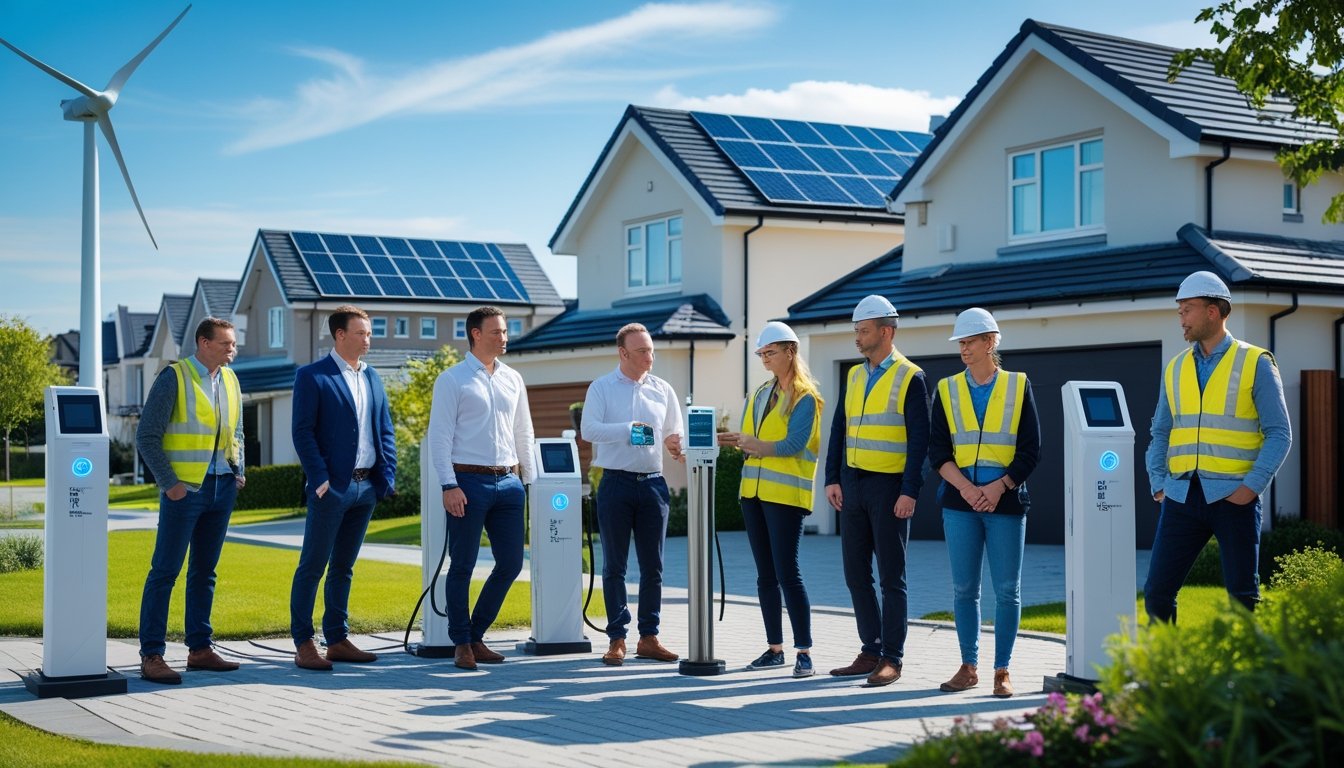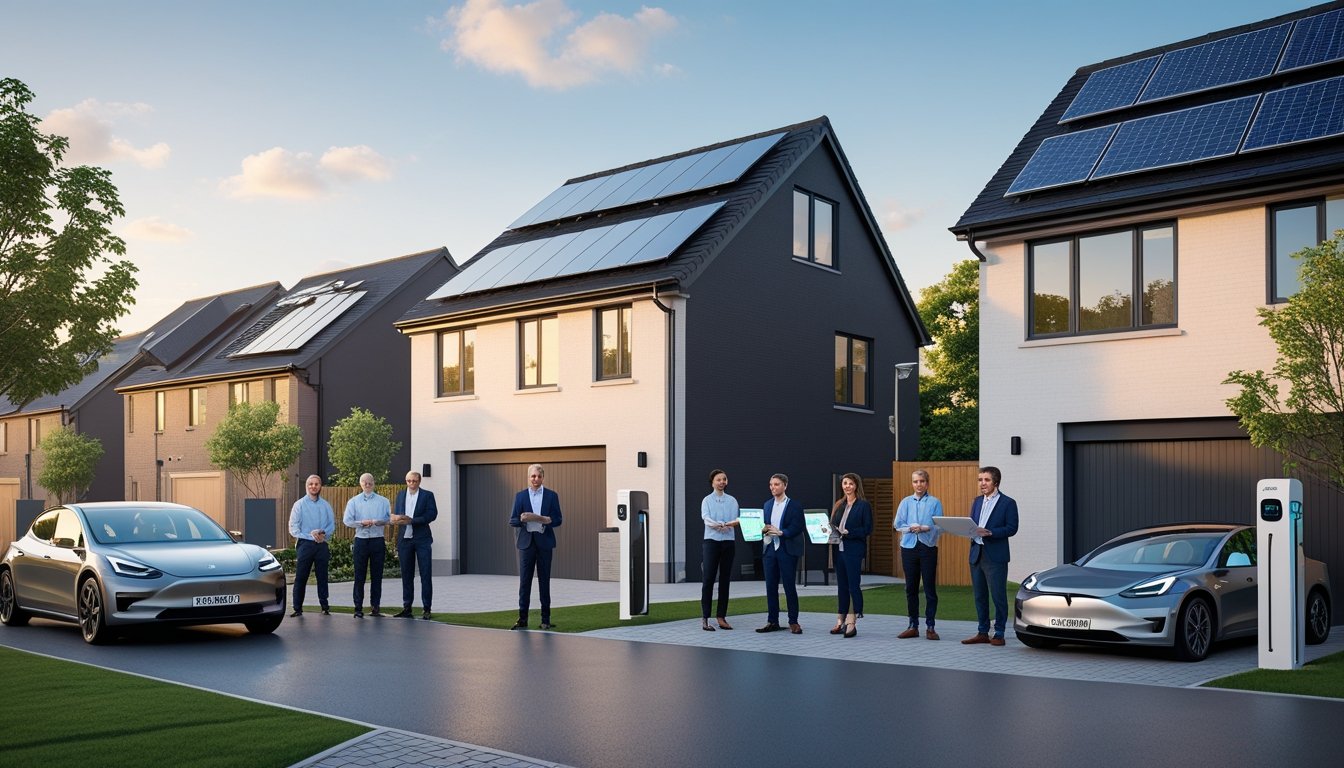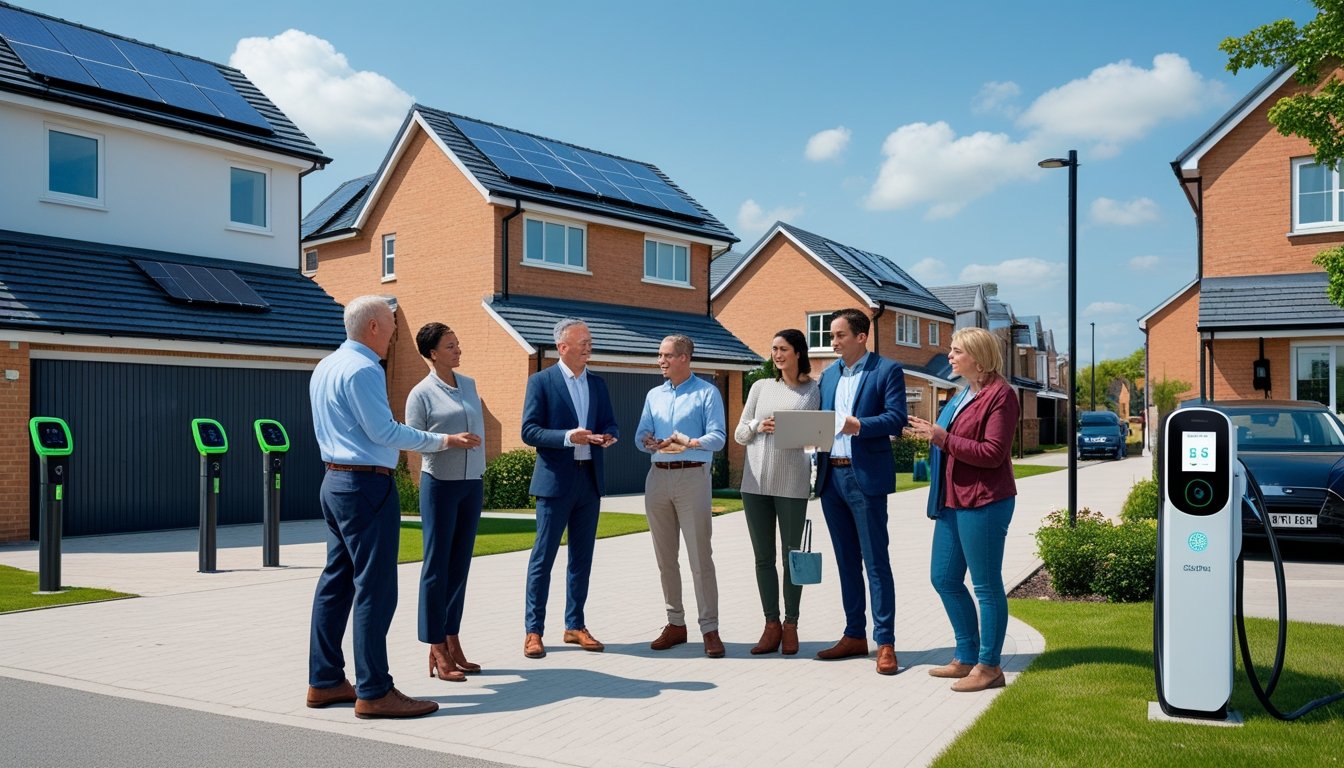Late updated: 23 Jul 2025 09:07
Written by: Eleanor Hartman
Exploring New Home Energy Technologies in the UK: Innovations and Trends
The UK is witnessing a transformative shift in the way we utilise energy at home. With advancements in technology, homeowners now have access to energy solutions that not only reduce carbon footprints but also cut costs significantly. From smart solar panels to advanced heat pumps, innovations are opening doors to more sustainable living. Our homes are primed to benefit from these technological strides, making a genuine impact on energy efficiency and sustainability.

The government is also playing its part by introducing policies that encourage the adoption of renewable energies. These policies are not only seeding new technologies but are also ensuring that they adhere to the highest standards of efficiency and safety. This proactive stance is fostering an environment where energy innovation can thrive, ultimately leading to greater benefits for us all.
As we embrace these modern energy solutions, it is crucial to navigate the landscape with a well-informed perspective. By understanding the latest innovations, industry impacts, and frequently asked questions, we can make better decisions for our homes and contribute meaningfully to a more sustainable future.
Key Takeaways
- New technologies are making UK homes more energy-efficient and sustainable.
- Government policies are crucial in advancing renewable energy adoption.
- Informed choices lead to better energy solutions and sustainable living.
Transformative Home Energy Technologies in the UK
Transformative advancements in home energy technologies are reshaping the UK's energy landscape. These innovations focus on renewable sources, efficiency improvements, and breakthrough alternatives like hydrogen. Here, we explore the transformative aspects of heat pumps, innovative solar solutions, and emerging alternatives such as hydrogen boilers.
Heat Pumps and Air-Source Systems
Heat pumps represent a pivotal shift in home heating. Utilising renewable energy, they offer an efficient way to transfer heat from outside to inside a home. Particularly, air-source heat pumps are gaining traction due to their effectiveness even in colder climates.
Heat pump installations contribute significantly to reducing carbon footprints. As we move towards a net-zero future, integrating these systems into homes will be crucial. They are often part of government incentives aimed at promoting sustainable living, making them a practical and financially viable option for homeowners.
Innovative Solar Panels and Solar PV
Solar panel technology, specifically Solar PV, is transforming the renewable energy sector. These systems convert sunlight directly into electricity, providing a clean energy source for homes. Recent innovations in solar panels focus on improving efficiency and reducing costs, making solar power more accessible.
The UK's adoption of Solar PV systems is crucial in meeting energy demands sustainably. New developments allow for better energy storage, integrating battery solutions that enable excess energy use even after the sun sets. This shift enhances solar energy's reliability and appeal to households looking to reduce dependency on traditional power sources.
Hydrogen Boilers and Emerging Alternatives
Hydrogen boilers present a promising alternative to traditional gas boilers. As hydrogen production becomes more efficient, these boilers can offer a sustainable way to heat homes without carbon emissions. They highlight the broader move toward clean energy alternatives amidst climate concerns.
Emerging technologies complement hydrogen solutions, offering diverse options for households. These alternatives, while still developing, illustrate the broad spectrum of future-proof energy solutions. Interest in hydrogen boilers grows as the infrastructure improves, setting the stage for wider adoption and integration into the energy system.
Each of these advancements demonstrates our ongoing commitment to pursuing sustainable and innovative home energy solutions in the UK.
Policy, Standards, and Industry Impacts

Our exploration reveals significant developments in UK home energy technologies rooted in policies, standards, and industry shifts. These elements combine to shape the path towards achieving energy-efficient homes, reducing carbon emissions, and supporting net-zero commitments.
Home Energy Model and the Move Beyond SAP
The Home Energy Model (HEM) provides detailed insights into a household's energy use, going beyond the traditionally used Standard Assessment Procedure (SAP). Where SAP offers a baseline, HEM provides a comprehensive view, incorporating real-time data and feedback. This enables more precise energy management and efficiency improvements. Sustainable energy practices become actionable through HEM, as it considers the dynamic interplay between energy systems and user behaviour.
By integrating smart technologies, such as automated heating systems and energy-efficient appliances, HEM facilitates decarbonisation efforts. It aligns with the UK's broader goals of reducing the carbon footprint of homes, thereby enhancing energy system resilience. Our approach to home energy must continually adapt to incorporate new technologies that drive energy savings and environmental benefits.
Future Homes Standard and Building Regulations
The Future Homes Standard represents a transformative shift in building regulations within the UK. Set to be implemented by 2025, these standards aim to ensure new homes are built with significantly lower carbon emissions, ideally bringing us closer to achieving net-zero targets. This requires builders and architects to prioritise energy-efficient design and materials.
Building regulations now demand advanced insulation, energy-efficient heating systems, and integration of technologies such as solar panels and electric vehicle charging points. These measures significantly impact the market by influencing how housebuilders and architects approach design and construction. Such standards not only reduce emissions but also lower energy bills, providing both environmental and economic benefits to homeowners.
Delivering Net Zero and Reducing Carbon Emissions
Achieving net-zero emissions in the housing sector remains a critical part of the UK's climate strategy. To support this, policy measures and industry collaboration focus on decarbonisation and the adoption of renewable energy in residential properties. The transition involves enhancing the energy efficiency of existing buildings and ensuring newly built homes are equipped for future energy demands.
Various government incentives encourage the shift towards low-carbon technologies, facilitating the adoption of sustainable practices. These incentives aim to harness the potential of renewable energy sources, such as wind and solar power, reducing our reliance on fossil fuels. By embracing these changes, we not only contribute to a greener future but also foster innovation within the housing sector, driving progress towards a more sustainable energy system.
Frequently Asked Questions

As we explore the integration of new home energy technologies in the UK, several questions arise about enhancing energy efficiency and implementing sustainable solutions. Focusing on specific areas, such as the benefits of improved insulation and renewable energy technologies, we aim to provide clear insights.
What are the benefits of installing double glazed windows in terms of energy savings?
Double glazed windows significantly reduce heat loss, offering enhanced insulation. By trapping a layer of inert gas between two panes of glass, these windows keep homes warmer in winter and cooler in summer. This improved insulation leads to less reliance on heating and cooling systems, effectively lowering energy bills.
How can renewable energy sources be integrated into existing UK homes?
Integrating renewable energy sources in existing homes involves several options such as solar panels, wind turbines, and biomass systems. Retrofitting existing structures with these technologies supports a reduction in carbon emissions. Financial incentives are available to encourage homeowners to make these environmentally friendly upgrades.
What measures can be taken to improve heat retention in residential properties?
Improving heat retention can be achieved through better insulation, draught-proofing, and utilising energy-efficient heating systems. Loft insulation, cavity wall insulation, and floor insulation are all effective strategies. High-performance doors and windows further contribute to maintaining a stable indoor temperature.
Which types of doors are considered the most energy-efficient for homes in the UK?
Composite doors and uPVC doors are popular for their high energy efficiency. These doors often come with insulating cores and advanced sealing techniques. Effective choices for reducing heat transfer, they help maintain indoor comfort and reduce energy consumption.
What advancements have been made in energy-saving glass for residential use?
Recent advancements in energy-saving glass include low-emissivity (Low-E) coatings and smart glass technologies. Low-E glass reduces heat transfer while allowing maximum natural light. Smart glass can change its thermal properties on demand, offering dynamic heating and lighting benefits.
How does increased energy efficiency contribute to overall energy cost reductions for UK households?
Increased energy efficiency leads to reduced energy consumption, directly impacting household bills. By implementing energy-saving measures, such as efficient lighting and appliances, and improving insulation, households can significantly lower their energy costs while contributing to environmental sustainability.